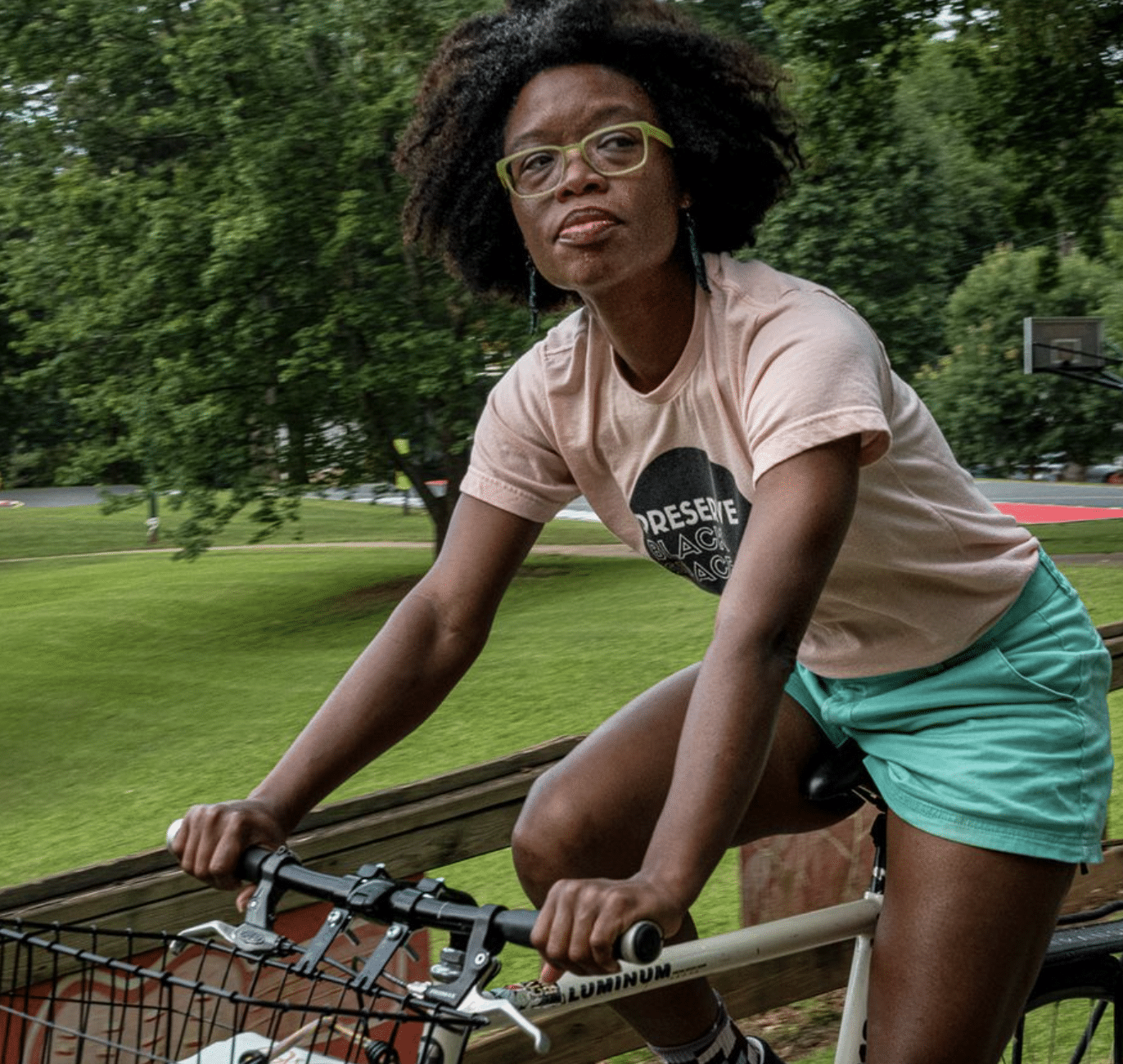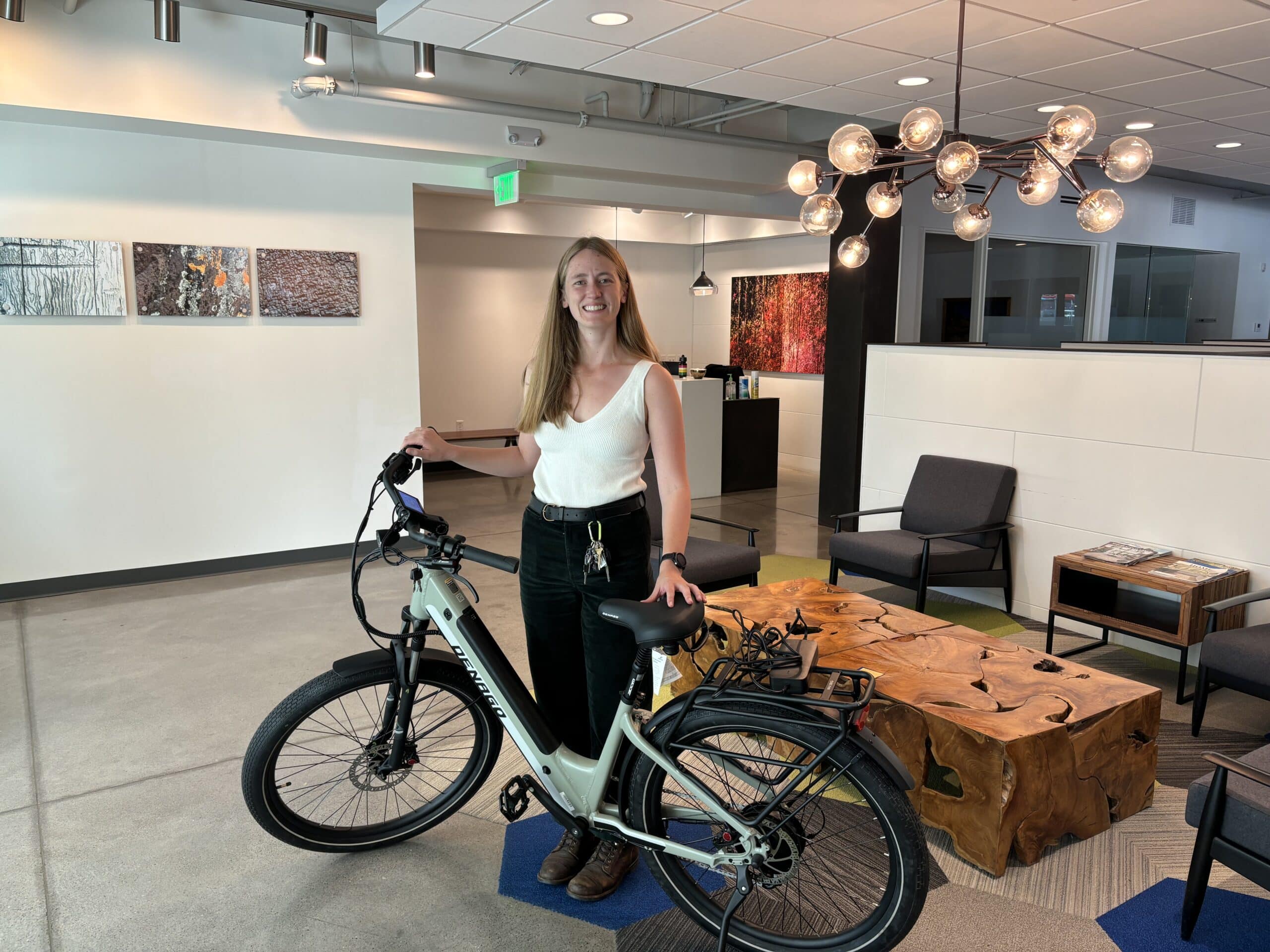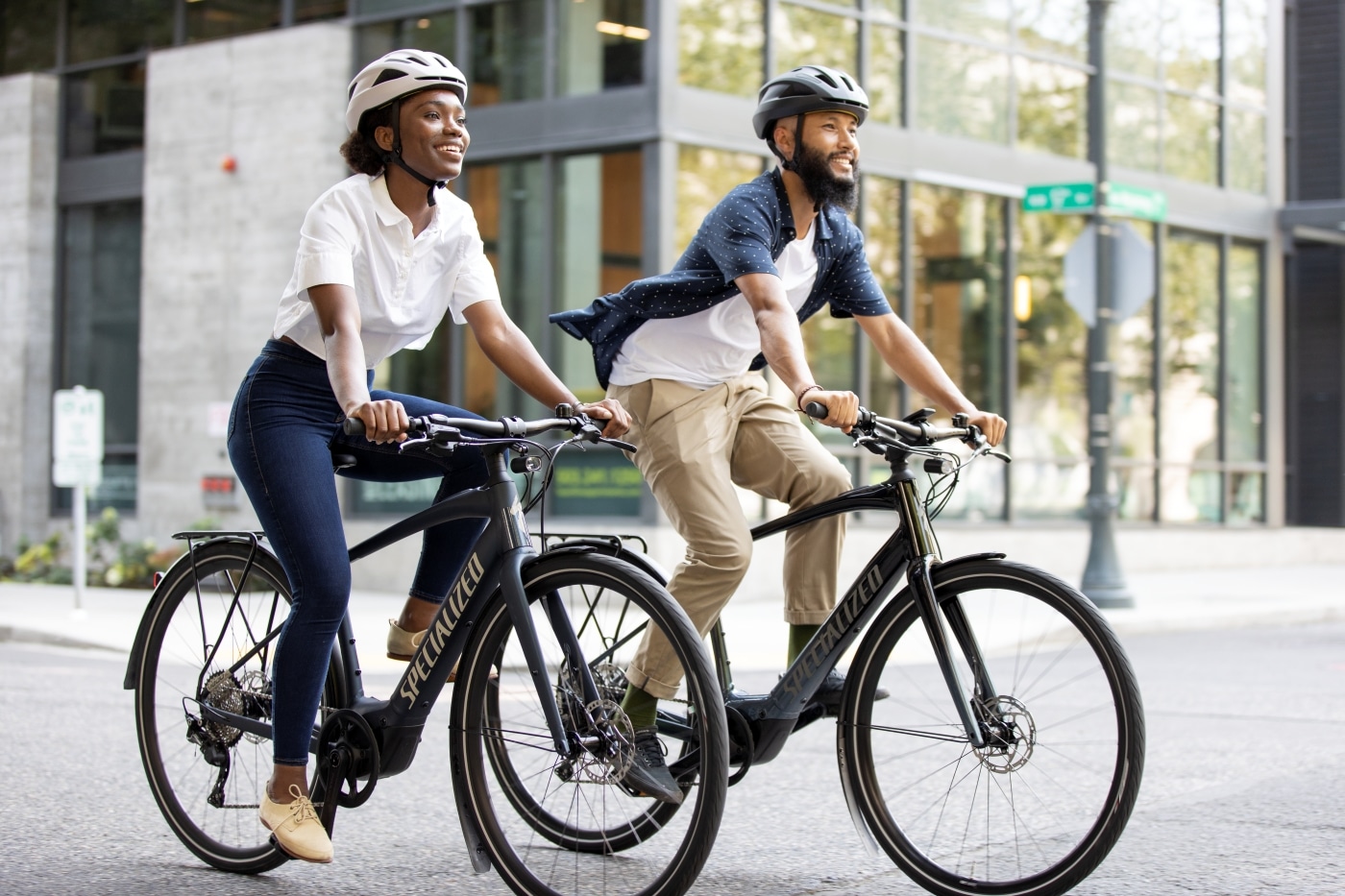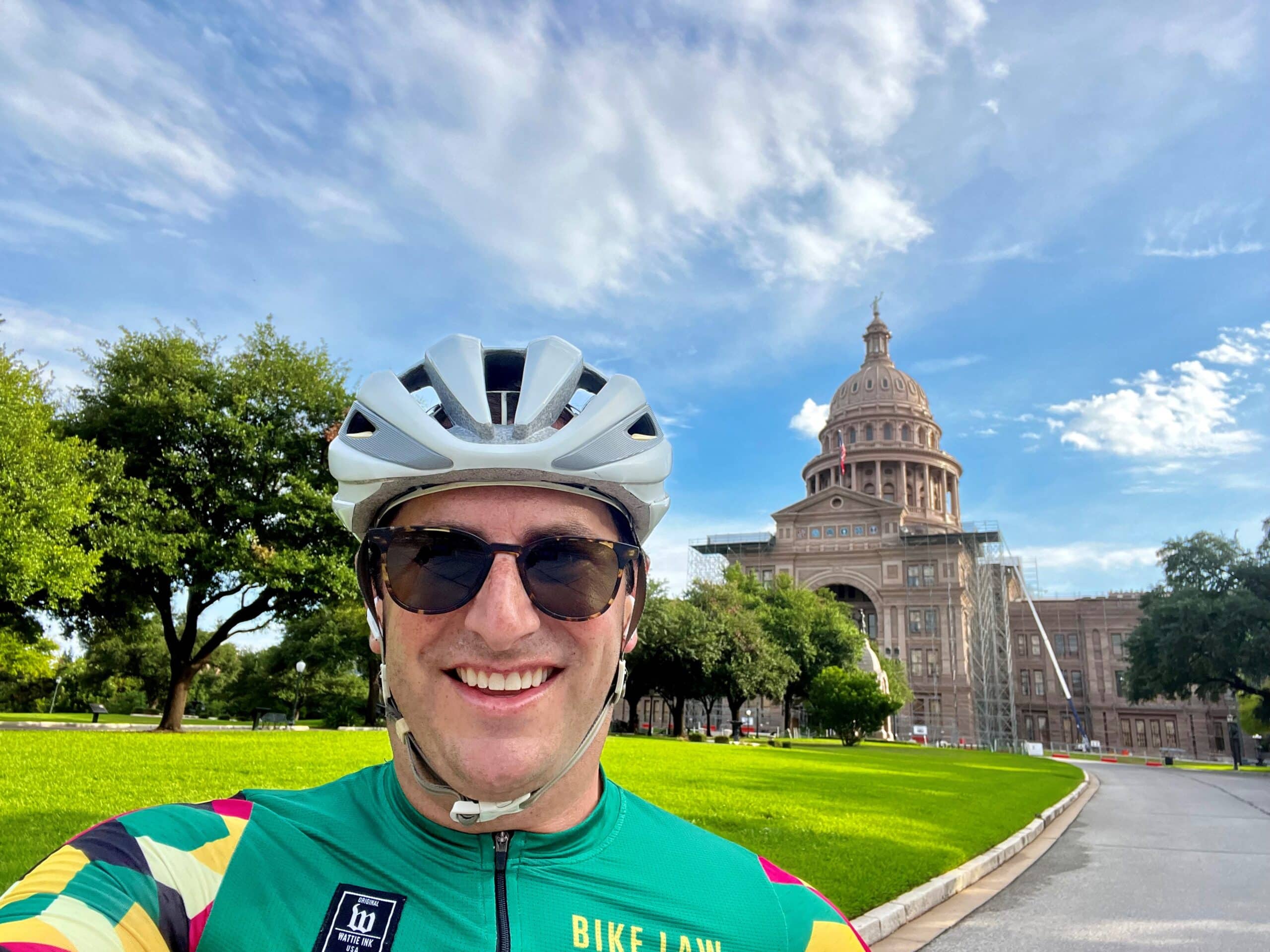Tour Atlanta by with a modern day Freedom Rider.
“If we are to have peace on earth, our loyalties must become ecumenical rather than sectional. Our loyalties must transcend our race, our tribe, our class, and our nation; and this means we must develop a world perspective.” MLK Jr. Christmas in Atlanta, 1967
Atlanta Bike Advocacy Think Tank
Last fall, I hosted an Advocacy Think Tank in Atlanta, Georgia. Several of the Network’s bicycle crash attorneys (Ann, Bruce, Danny, Charlie, and Peter) and Bike Law Foundation Ambassadors and several Women on Bikes (Kathryn-AL, Les-LA, Carson-CO, Jared-FL, Nik-GA, Diane-SC, Dru-GA, Katrena-GA, Marissa-VA, Caitlyn-TX, Rory-MD, Marcos-NC, Travis-AL, and Mikey-GA) traveled from as far as Colorado to gather with a distinct doctrine and best practices, to share experiences and initiatives that have been successful at creating visibility and improving the conditions for all people on bikes.
I found a monsterous short term rental in Grant Park — it was painted white with lots of places to sleep (that were clearly not intended for sleeping at the time of the building’s construction) and a giant sloping floor upstairs complete with a small stage for presentations and huge stained glass windows to let all the light in.
The altar was gone, but we were there to worship.
Especially in the context of biking as a basic human and civil right, and the worthwhile fight for visibility, recognition, equity, and justice, the city of Atlanta and its people play a very important role in contemporary history. Understanding and allowing one’s self to be moved by dynamic and diverse urban culture means going back to a period of time in which Black Americans both fought for and shaped what it means to belong, regardless of one’s membership to a certain group, community, or class.
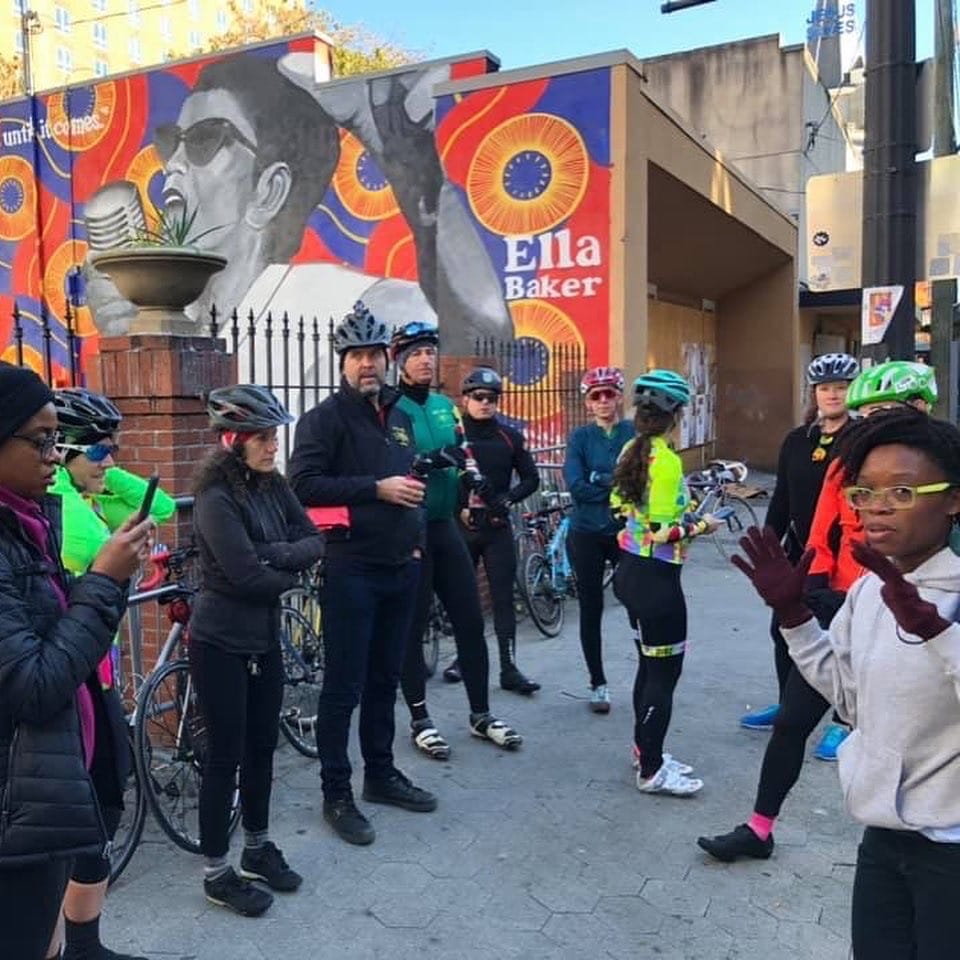
Day one of the Bike Law Advocacy Think Tank begged for someone who could show us, with confidence and intimacy, what makes Atlanta such a special place and why. And she did it on the bike.
Women on Bikes: Nedra Deadwyler
Nedra Deadwyler grew up in Decatur and was in the saddle by the age of 4. As an adult and an Atlanta resident, she is the owner of Civil Bikes, a walking and biking tour company that allows anyone who is willing to “create a relationship with Atlanta.” She is not “just” a (Black) woman in the saddle, she is a preordained teacher, humanitarian, and community builder. She is a strong, calm voice, a local historian, and she was the guiding force needed to reinforce our beliefs that the bicycle is invaluable and until minorities and subgroups of any community are represented, recognized, and rewarded with the same visibility in public spaces as those who have never had to grapple with their own racial identity, safer scalable biking is a long way away.
Nedra says, “The bicycle has been many things to me; providing a sense of freedom, a way to escape, helping me to feel strong and empowered, and providing ways to be social (connection to community and central to building community). Being a Black woman cyclist means that I’m carrying on a tradition and am part of a legacy of Black cyclists. My hometown of Atlanta has an incredible history of Black people being active outdoors on a bike.”
She continues, “But life as a Black person on a bicycle is not much different than when I’m off. Walking into the grocery store or sitting on my couch, I have the same level of vulnerability to violent extremes that can be enacted on me at any point.”
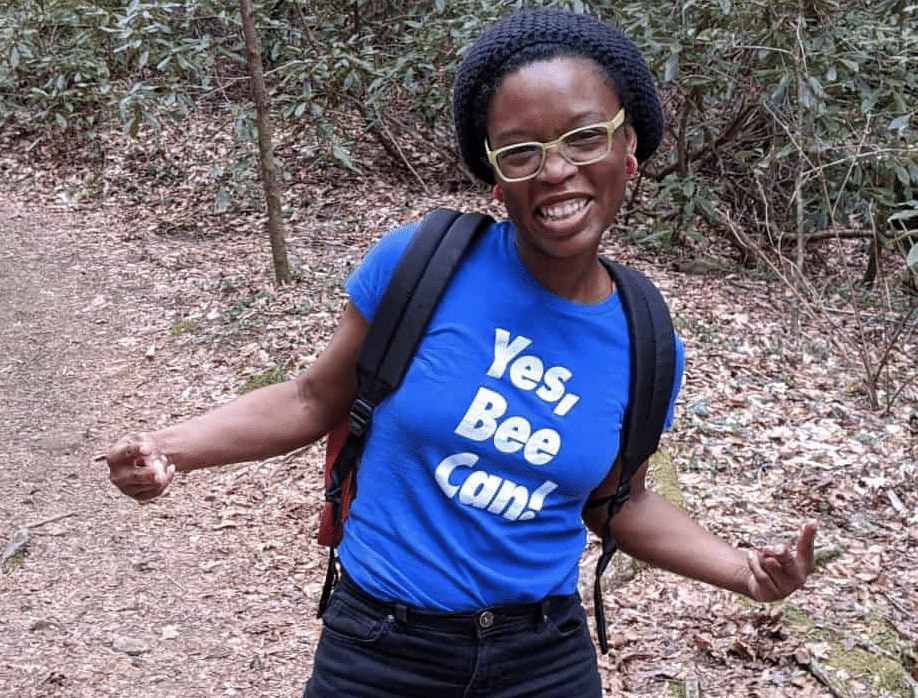
I’m not Black, but as a PoC, and one who has confronted the increasing level of comfort amongst white people to express anti-Asian vitriol, I am encouraged by Nedra, her call to action and activism, and her willingness to invite others who want to participate in being part of the solution into her life and her city in a very intimate and thoughtful way.
“If I were silent, I would be prioritizing the comfort of those uncomfortable with these realities over my own. I’ve been silent and nothing changed. I’ve also spoken to these realities and not been believed. I will continue along with so many others to express that our safety is key to breaking the code on people being hit [while biking] by motorized vehicles.”
Cycling as a Civil Right
The reality these days, as we know all too acutely at Bike Law, is that it’s not a matter of “if,” but rather “when” someone you know, love, or with whom you ride will be involved in a bicycle crash involving a careless or reckless driver. And if the crash victim isn’t someone connected to you by a single degree of separation, it might be you. Ironically, since women like Nedra work so tirelessly to create balance and equity, metrics like race, religion, shape, size, and socioeconomic status still matter just as much in the arena of bike crashes as in every other facet of life. And there is only truth (and power) in pointing out that if those who are most underrepresented and excluded cannot walk or ride their bicycles safely, it’s unrealistic and self-sabotaging for white middle aged men on $10,000 bicycles to expect that they will be immune from the crash epidemic and violation of the basic human and civil right to safely walk or ride a bicycle in America.
Nedra understands fear, but chooses to embrace courage. “I am an educator and have had rides, classes, and even tours with newer riders and the main way to assuage fears is to give a view of what is ahead. ost people are afraid of what either they don’t know or what they think they don’t know. Sometimes that also means connecting the dots and reminding folks of their abilities and skills. Biking is something where being relaxed, having self trust, and confidence goes a long way. We can all edge deeper into those areas.”
Women are the Future of Cycling
Women on Bikes shoulder responsibilities that are unique. Being a Black or Brown woman in the saddle adds a whole layer of additional challenges that requires ALL women on bikes to work together, as we would in a peloton, to expose and improve the inequities in bicycling, especially the ones that target minority riders and People of Color.
Nedra explains that one of the biggest challenges to women on bikes are created and amplified by the bike industry itself. “We are just now (last few years) seeing kits that look good on various shapes and sizes of women’s bodies. We still need helmets to catch up. Probably other types of gear, too (I don’t use gear). Personally, I would love to just see advertisements focus on what is created internally from being on a bike. That’s where the magic happens anyway, everything else is a distraction. Women are important. Women were 49.6% of the population in the world in 2017. Women raise children (too), are the deciders of spending money, deciders of family activities, are influential members of society and creating anything without including us is an absolute failure.”
As far as the role women play in the growth of cycling and the cultivation of a wholly inclusive bike community, it’s important to account for the fact that we (women) are responsible for the greatest surge and increase in ridership and rideshare in the last several decades. 60% of new riders and bicycle owners in the U.S. are women. More than half of those are Women of Color.
Nedra says, “Bicycling is part of our lives- there are examples of people having different experiences on the bike because of race, gender, gender expression, and even age. Data is available and advocates for 10+ years have talked about equity. It needs to be addressed in a real way everywhere, consistently, with intention, and without any push back. It would also be great if the industry took up social issues- Black and Brown women are on the rise in cycling and being conscious of us and our dollars is a necessity.”
Her words sound like a sermon to me. When she speaks, she encompasses every nuance that exists in the interconnectedness between the pursuits of social justice, liberation, and safely riding a bike.
“I’d add that the times that have given me the most joy on a bike were getting through the grueling part of a super long endurance ride, teaching someone else to ride with confidence, and any time I’ve explored a new place. I have had to engage something internally as well as connect to the external world in a way that created a spark.”
That sounds like independence and empowerment to me.
If you’re ever in Atlanta, book a private bike tour with Nedra. There is so much (more) to learn from her. As a leader, role model, educator, and advocate she sets the bar pretty high. Then again, she’s barely gotten started. If you open your mind and your heart the same way Nedra’s opened the door for anyone willing to step through it, and if you join her in solidarity and the saddle, you will get more than “access to Atlanta lives” and the “heroes we didn’t grow up with but should have.”
You will be able to say that you rode your bicycle with a modern day Freedom Rider.

Rachael Maney is the Director of the Bike Law Network and of the non-profit Bike Law Foundation.
